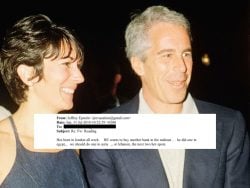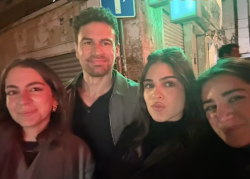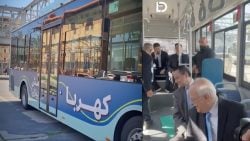Let’s Talk Democracy, Beirut
2009. Let’s go back in time. What do you remember from that year? I was only 11. The IPhone 3g had just been released a year before, 3D movies were not out yet in the cinemas and it was only on the 2nd of October of the same year that Beirut Souks had been opened. It seems to me like ages ago, am I the only one? Well, that year was also the last time the Lebanese citizens savoured the taste of democracy (on a Parliamentary level, of course). On June the 7th of 2009, we, the Lebanese people, had elected our new Parliament, having no doubts that we would do the same in four years. How surprised were we, on the 15th of May 2013, on the 5th of November 2014 and again on the 16th of June 2016, when we were told that the Parliament had successively extended its own mandate. This did not go without strong repercussions on Lebanese society.
In terms of numbers
8 years ago. 21 + 8 = 29. This means that those who were 21 during the last elections have now turned 29. As shocking as this may sound, a whole generation in our country has never cast a single ballot to elect its Parliament. Today, as we stand, all those who are between 18 and 29 (excluding those who were born before the 7th of June 1988), have never made their voices heard. What does this mean for our society?
First of all, it is important to note that approximately 1,086,000 of Lebanese citizens are aged between 20 and 29 (according to Indexmundi), within an estimated total of 4,300,000 Lebanese citizens. This represents around 25.2% of the Lebanese population. In addition to that, the population aged below 29 years constitutes 58.8% of the whole population (according to an AUB study in 2000). This leads us to conclude, that even if all those who voted in 2009 would vote the same today, the Lebanese Parliament represents only 41.2% of the Lebanese population (on the hypothesis that it did represent the population in 2009). A quarter of the Lebanese citizens of age to vote have no say upon who is governing their country.
A threat to democracy
This phenomenon is extremely dangerous to our democracy. The youth has come to believe that they have no power in changing anything as their voices have been echoing in the void. They have seen the same speaker since 1992 and the same faces as far back as they can remember. A sense of democracy has been lost over a whole generation. On a long-term run, this is the best scenario preventing us from renewing our political scene as well as from putting our religio-political divisions aside. Why? Well, when the youth have only seen the same politicians occupying the political scene, they will somehow normalise their eternal presence. It only seems in the ordinary course of history, that a son succeeds to his father as leader of a political party. Today, we assume and accept that the leaders of political parties each represent a specific category of Lebanese (e.g. X party represents the Chia’a, Z party represents the Orthodox, Y party represents the Sunni…). Today, we are teaching our youth that these people represent them, without the need for their consent. If a whole generation is fed up with such discourse, how will they ever fight for the renewal of their political scene? How will they ever get over their religio-political divisions? They simply will forever internalise the existing divisions without even thinking them through. Today’s youth is living the scars of 20 years of civil war. The stagnation of the political scene will create an even stronger division of the population, and the lack of elections will not solve this vicious circle. Therefore, the absence of elections for such a long period of time will result in the consolidation of the current political forces with the decrease of a political constructive critique mind within the youth. We are one step further from democracy and another closer to a totalitarian regime.
A threat to social integration
On the other hand, the absence of elections also constitutes a barrier to the youth who wish to be part of their society. Those who have not internalised the current political representation will find it impossible to integrate in a society that fails to represent them. It is essential for one to be a politically concerned member of society in order to properly fulfil one’s social integration. This leaves out a significant number of citizens who no longer have faith in their political institutions. Rather than feeling represented, they feel oppressed. Again, this will also emphasize the religious, social and political divisions that have been disrupting the country for so long.
The trivialization of one’s vote
The absence of elections will also serve to devalue one’s vote. “Whether or not you vote, we will remain in power”. This is the message that the non-existence of elections is sending. There is no more sense of democracy and thus no understanding of our role as an electorate. The youth does not know that their vote can actually make a change and do not know what is the appropriate behaviour to endorse when the decision is in their hands. If we look back to the municipal elections that took place last year, this phenomenon was at its peak. People (youth and older generation) were selling their votes. They would take USD $100 in exchange of casting a specific vote for someone else. Democracy became a product available on the market and no one was trying to hide it. The videos went viral and no actions were taken. Voting then becomes a way of merely giving legitimacy to those in power, without questioning their qualifications.
A wave of hope
Although we have been living in a pretence of democracy for a while now, I have been able to perceive a wave of hope since July 2015. Regardless of my own political affiliation or non-affiliation, our democracy has finally started breathing again. People have begun to realise the danger of the situation and want to act upon it. Many citizens have felt empowered enough to create new civil movements asking for a political renewal and the running of new elections. They did not waste any opportunity to revive the Lebanese political scene, and for the first time in 30 years, we witnessed new lists opposing the usual ones during the municipal elections. Due to this breath of democracy in the country, I remain very hopeful as to the future of our political scene.
Main image courtesy of Naharnet
1





